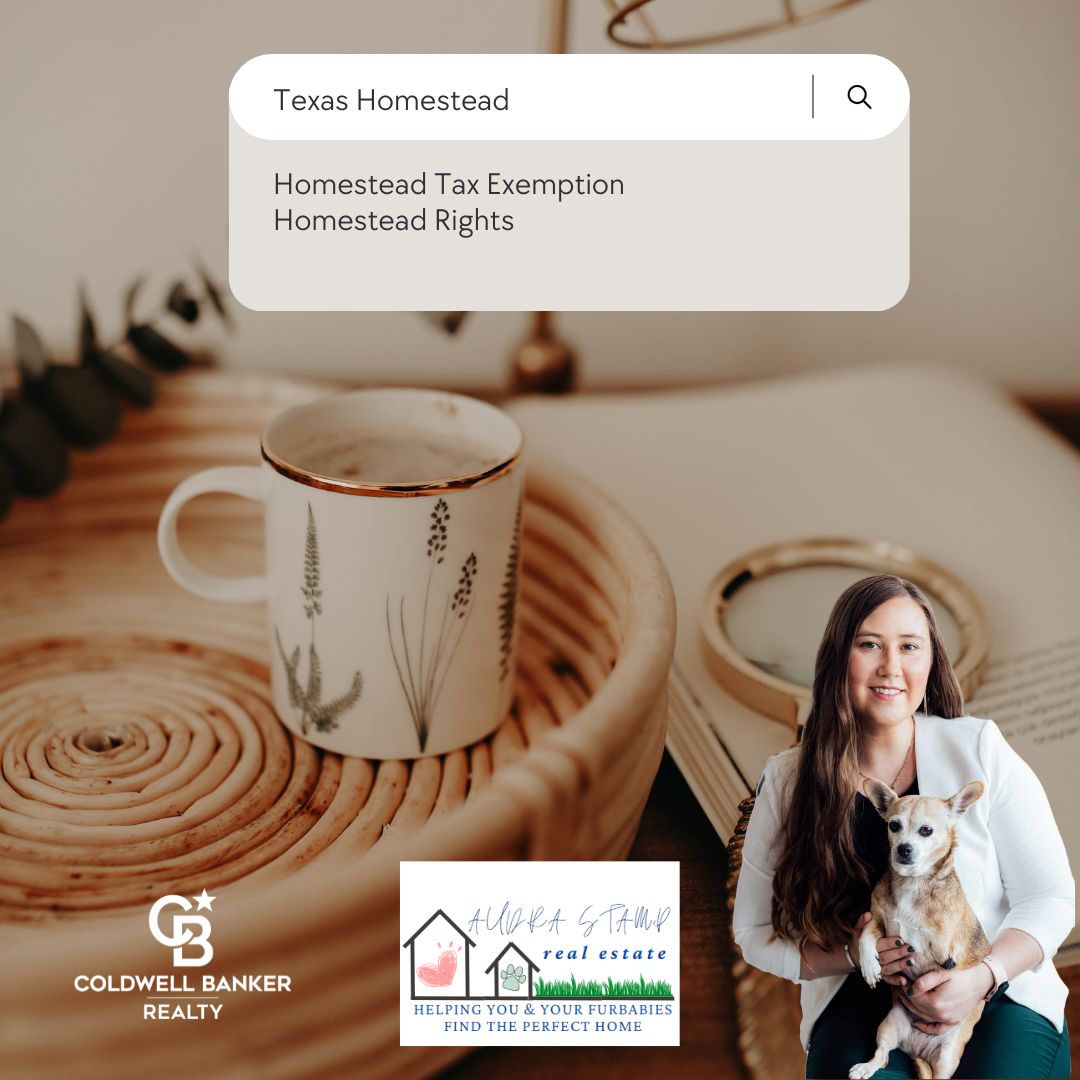
In Texas, you hear the word Homestead often, but do you know the difference between the Homestead Tax Exception and your Homestead Rights?
Many people are probably very familiar with the Homestead Tax Exemption. There are 3 qualifications you must meet to claim the Homestead Tax Exemption: 1) your home must be your principal residence, 2) you must own your home (partial ownership does count), and 3) you must have a Texas driver’s license (or Texas-issued personal identification certificate). If you meet all these requirements, then your primary residence can qualify for the Homestead Tax Exemption, but what does it actually do?
Your Homestead Tax Exemption is based off your local school taxes. With the exemption applied, this allows the school taxes to be calculated $100,000 less than the appraised value. For example, if the appraised value of your home is $450,000, then you’ll only be taxed on $350,000. This is a tax break for Texas residents. Again, this can only be applied to your primary residence. If you have a vacation home, a long-term rental home, Air B&B, you can not apply the homestead exemption to these homes.
If you have not filed for your homestead tax exemption, head over to https://comptroller.texas.gov/ and in the search bar at the top type in “Homestead exemption application”. Fill out that application and send it in to start getting that tax relief!
Now that we have a better understanding of the Homestead Tax Exemption, let’s talk about your homestead rights. Ultimately, these are laws that have been put in place to help Texas homeowners avoid homelessness when they fall upon hard financial circumstances. There is no formal or legal process you need to follow to have these rights, they are rights everyone is entitled to.
These laws protect Texas homeowners from the loss of their home by creditors seizing or forcing a sale of your property. Basically, what this means is that creditors such as credit card companies, contractors, school loan departments, medical debtors, cannot seize your home to pay for these debts. For example, if you have a large amount of college loans or medical debt after an accident, those debtors cannot try to take your homestead as a form of payment.
There are expectations for this of course which include home loans (not paying mortgage), tax liens (not paying property taxes), and some intricacies during a divorce settlement.
Something else to keep in mind in regard to the homestead rights, while these debtors can’t seize your property to pay off their debt, they can still file a homestead lien for the debt owned. This means that if you paid the contractor who updated your kitchen only $15,000 of the total $30,000 bill, this contractor can file an M&M lien against your property. Then when you decide to sell your home, at the time of sale, the $15,000 still owed to that contractor will come out from the profit of the sale to pay off that lien.
Lastly, and this suggestion comes from a lawyer who spoke to our brokerage office, remember that if any debtors have a lien against your home, they can always use this to slow down the sale of your home. When a contract goes to the title company, they will then investigate if there are any liens against the home. If so, those debtors are notified. Sometimes these debtors will object that this property is your homestead. Even if this property is in fact your homestead, if there is an objection to this, it has to be disputed in the courts. This inevitably means that the closing date that is stated on the contract for 30 or 45 days out, there is a good chance that closing date will be pushed out until the dispute is resolved. This could also be a reason for a buyer to want to pull out of the contract completely. It’s highly suggested, if possible, to pay off any liens against your homestead before entering into a contract.

 Facebook
Facebook
 X
X
 Pinterest
Pinterest
 Copy Link
Copy Link

